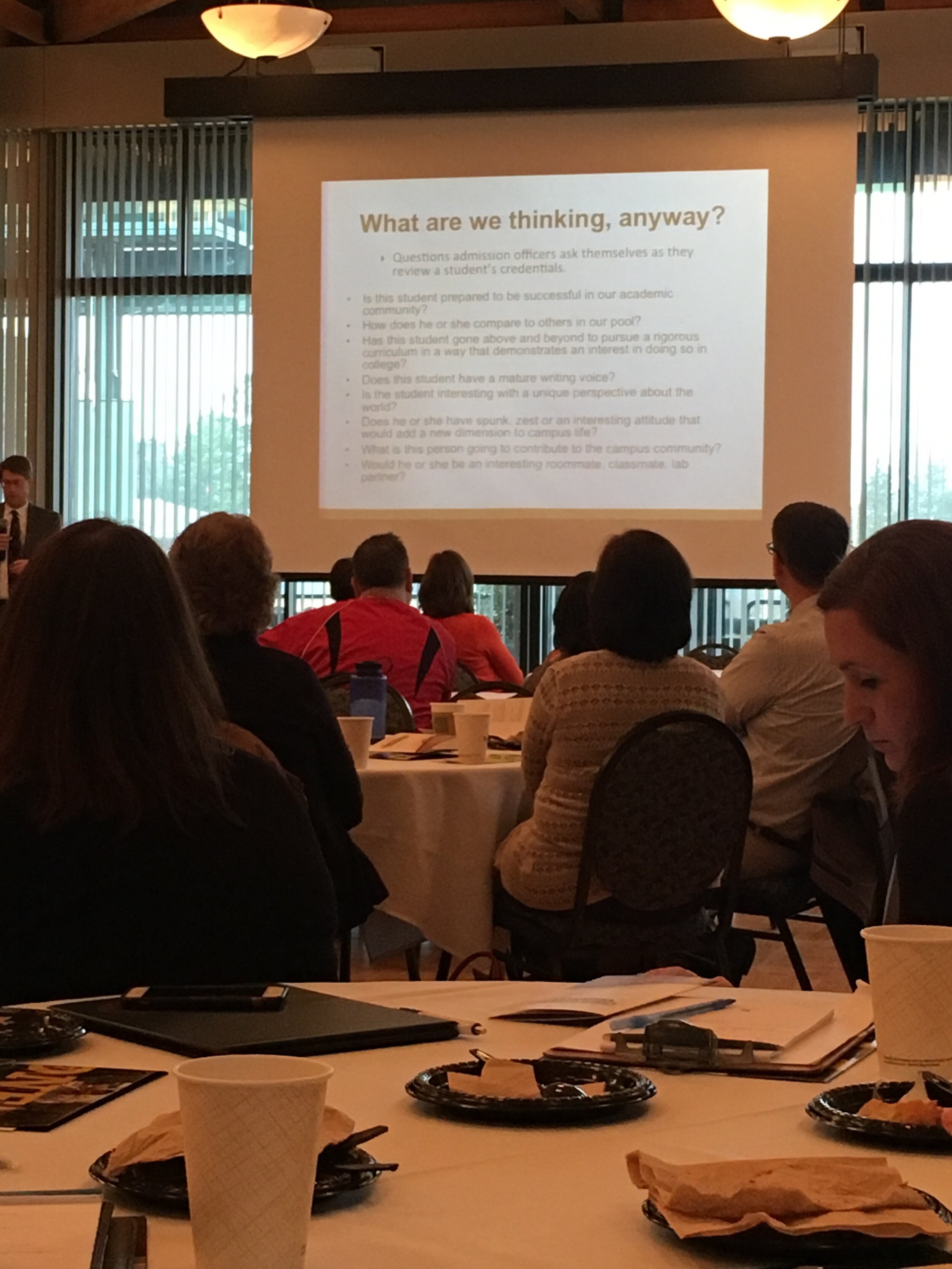Coming in with a double weekly update since we didn’t post last week!
The end of the second week of AP exams draws near, and we wish good luck to all who took or are still getting ready to take their exams! We know that some students will also have their own schools’ exams to look forward to in the coming weeks. Here’s to happy and productive studying for everyone! 🤞🍀
BIGGEST COLLEGE-RELATED NEWS OF THE LAST 2 WEEKS
COLLEGES STRUGGLE WITH HOW TO PROCEED WITH GRADUATION CEREMONIES
As campus protests continue, many colleges faced challenges in determining how to hold graduation ceremonies without the chaos – or if that’s even possible! Columbia University canceled their main commencement event and instead held smaller ceremonies for each of their colleges - but a few protesters were present regardless.
From the University of Virginia, to the University of Michigan, to Indiana University and beyond, clashes between police and protesters mean that university administrators are walking the line between free speech and campus safety. For some, this involved carrying on with ceremonies despite clashes, and others, like University of Southern California, canceled them altogether.
FRATERNITIES TAKE UNEXPECTED CENTER STAGE AT SOME COLLEGE PROTESTS
At the University of North Carolina-Chapel Hill, the Pi Kappa Phi fraternity found themselves defending the U.S. flag as protesters attempted to replace it with a Palestinian flag. They were successful in doing so the first time, but the fraternity brothers managed to hoist the U.S. flag back in place and keep it from being taken down a second time. The White House called their actions admirable, and a gofundme by an independent source unrelated to UNC or the fraternity has raised over $500,000 to throw a “rager” for them.
On the campus of Ole Miss, a student who was captured on video making racist taunts at a Black student was expelled from the Phi Delta Theta fraternity. They found that “the action in question was offensive, outside the bounds of this discourse, and contradictory to our values.”
ARRESTS CONTINUE ACROSS US COLLEGE CAMPUSES
The tally of how many arrests have taken place on US college campuses in the past weeks vary, with estimates around 2,800 at the time this post was written. Many professors have also been arrested.
The police in Hanover, NH released a statement about the 90 Dartmouth students arrested, while over in Durham, NH, a reluctant Chief of Police also made arrests at the University of New Hampshire.
WHO ARE THE CAMPUS PROTESTERS, ANYWAY?
Protests continue on campuses around the country and as arrests are made, university administrators and local police forces are finding that not everyone involved in the encampments, building take-overs, or marches are actual students or part of the school at all. Of the 112 arrested two weeks ago at Columbia University, 29% were not affiliated with the schools. At City College in Manhattan, 60% of 170 people arrested were not members of the school community. This makes us wonder how actions taken by the police and administrations may change going forward, if at all.
ANOTHER COLLEGE LOSES ITS PRESIDENT
Cornell University is the fourth Ivy League university, after Harvard, UPenn, and Yale, to lose their president within this past year. Dr. Martha Pollack recently resigned, in a move that seemed to surprise everyone at the university, and she will depart July 1. The search is on at all of these institutions for new leadership, a process that can take months or even years to complete.
MORE COLLEGE PRESIDENTS ARE UNDER THE MICROSCOPE
As colleges end their semesters and graduation ceremonies take place, some in altered forms or alternative settings, people are probing the methods used by university administrations, campus safety officers and local police forces in dealing with protestors on their campuses.
The president of the University of Virginia is defending his approach to use the local police to arrest a number of protestors even as others, including some faculty, express concern that it was too aggressive.
Across the country, it appears that faculty are placing their university presidents under greater scrutiny, as more members are holding “no-confidence” votes. UCLA faculty will continue to deliberate this week on the matter and Columbia University faculty are considering whether to make a “no-confidence” motion. University of Southern California, Barnard, UMass, and Emory faculties have all come down with a no-confidence or censure vote for their presidents in the past few weeks.
BEST ARTICLES OF THE LAST 2 WEEKS
As college counselors, we tell students to find schools that “fit” them — explaining that the time and effort spent searching and researching will lead to the right institution that will be their home for the next four (or maybe more!) years of their lives. Unfortunately, sometimes students get fixated on finding the “perfect” school and then panic when they fail to hear an angelic choir and heralding trumpets go off — even though they have toured dozens of amazing schools.
The reality is that there is no one perfect school! In fact, there may be several fantastic schools for each student, all a bit different and each with their own unique attributes, opportunities, and challenges. And the “challenges” part is just as important to a great college experience as the other two. Very often it’s when students are outside their comfort zone that the real growth happens: where they can expand their horizons and push themselves in new directions. This New York Times piece does a nice job of talking about the way some students can surprise those around them as they reveal how multifaceted they are. We encourage all students to find the schools that will make them feel comfortable, yet also just uncomfortable enough to grow in new and exciting ways.
Paying for college these days is no joke! With questions about return on investment, the value of a college education, and the realization that college-related debt is proving to be a life-long albatross around a whole generation’s neck, it’s important to find new degree paths. For a long time, community colleges have been that path.
Unfortunately, they have also been looked down on and seen as “not good enough” for someone who did well in high school; it just wasn’t seen as a truly “academic” path. But the good news is that this stereotype is finally being overcome and the myth: busted! This article shares how a California student with a 4.5 GPA chose the community college path for her first two years of college before transferring to a four-year school. The author notes, “[s]having two years off the costs of a four-year degree can save a student anywhere between $65,000 to $180,000 or more. That’s life-changing money for someone starting out.”
We actually live in one of the best areas in the country for guaranteed transfer opportunities, with NOVA's Guaranteed Admission Agreements in Virginia and University of Maryland’s Transfer Advantage Program. Both of these offer smart ways for students to be able to earn degrees from highly selective schools that may not have been realistic options directly out of high school. Additionally, for other students, these programs can make the attainment of a four-year degree a reality perhaps otherwise thought out of reach. We encourage our students to consider all of their options: both where they can get in today, and where they can graduate down the road.
Almost all of us have smartphones. And teens these days have never known a world without social media, selfies, or the algorithms that control their daily feeds. We are also at a time where mental health is at the forefront of our news, our culture and our health care. The question is: are all these things related? This author wonders if it really is the phones, as new data shows some changes in that line of thinking. However, it also shows how some of the more distressing news — an increase in suicide in teens and adults — seems to be a uniquely American trend. What is the role of culture on how we consume and relate to social media, our mental health and each other?
Visiting college campuses can be a fun, exciting and sometimes daunting experience. What are you looking for? Ivy covered brick? Expansive green quads? Modern buildings? Large, leafy trees? What makes a college campus beautiful is very much in the eye of the beholder, but see if you agree with this list of 37 of the Most Beautiful Campuses in the World! Did your favorite campus make the cut?
As a student and family research schools, an important question to ask is what new and innovative programs are they developing for an ever-changing future? How are they preparing students for jobs that may not even exist yet? Lehigh University has announced an exciting new undergraduate major that will begin taking applicants in Fall 2024 for admission in 2025: a BS in Integrated Business and Health. Housed jointly in the College of Business and the College of Health, the new Lehigh program is described as: The inter-college interdisciplinary program in Business and Health, Integrated Business and Health (IBH), trains students to become leaders in the health industry by developing an understanding of the core principles of business alongside an in-depth knowledge of health economics and policy. The program prepares future leaders of the health industry to better understand and address the vital conditions that shape community health and promote health equity.
“No,” is a complete sentence, but saying no to your child can be hard. So how do you have the conversation that the college your son or daughter wants to attend is just too expensive? This Washington Post article offers some strategies for having this difficult conversation. Working with your child to see the long-term benefits and get past the more immediate gratification can be a challenge, but chances are, they will thank you in the long run. Being able to graduate with little to no debt could shape their future for the better.
OFFICE HAPPENINGS
I spent last week in Connecticut, attending the Independent Educational Consultants Association (IECA) Annual Conference. This is a great opportunity for professional development and networking with some of the country's best educational consultants, in addition to many undergraduate and graduate admissions officers. Fun fact: I currently serve on the organization's finance committee and in past years have served on the business practices committee.
In addition to attending breakout sessions including "Out of the Mouths of Deans: An Interview With Admissions Leaders from Selective Colleges" and "How to Stand Out When A is an Average Grade," I have also been making time to visit colleges. Fairfield ended up to be a surprise favorite - I’ll be back next week with a recap of everything I learned!
—
Lastly, I wanted to mention that William & Mary just released their interview slots for the upcoming summer. If you plan to apply to W&M, you should definitely take advantage of this opportunity and sign up. They fill VERY quickly, so don’t wait!























